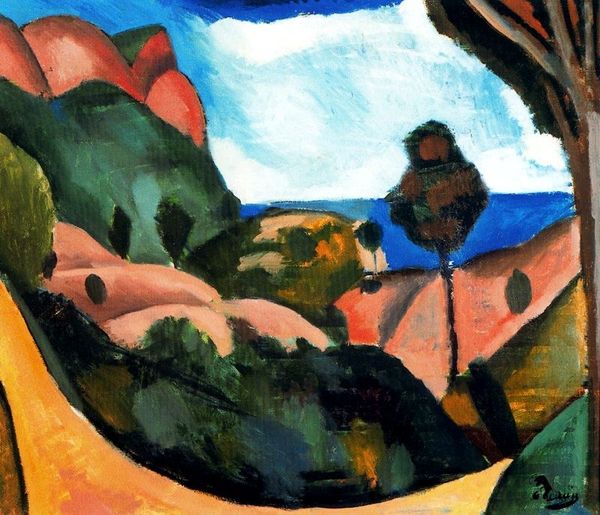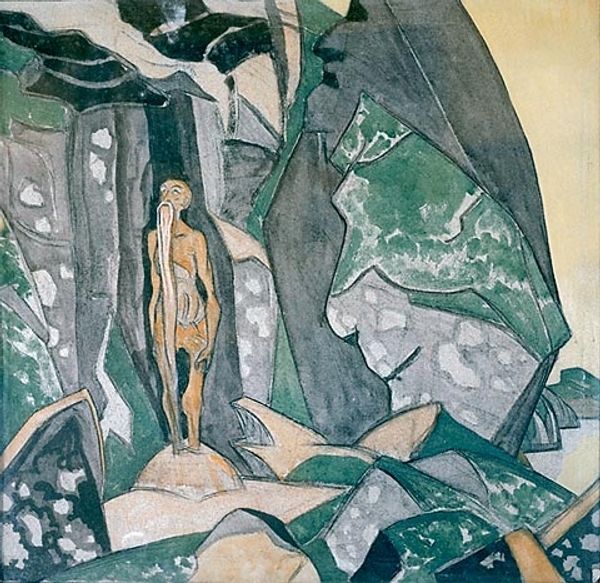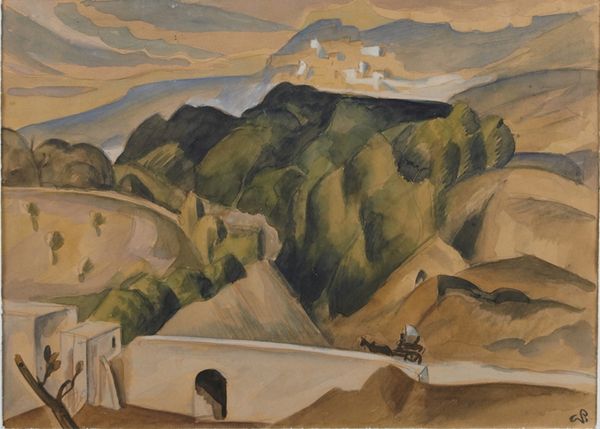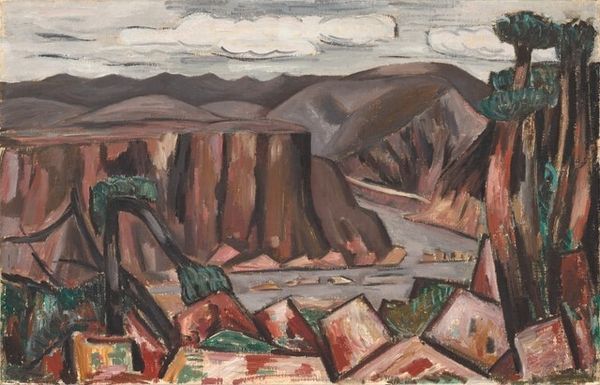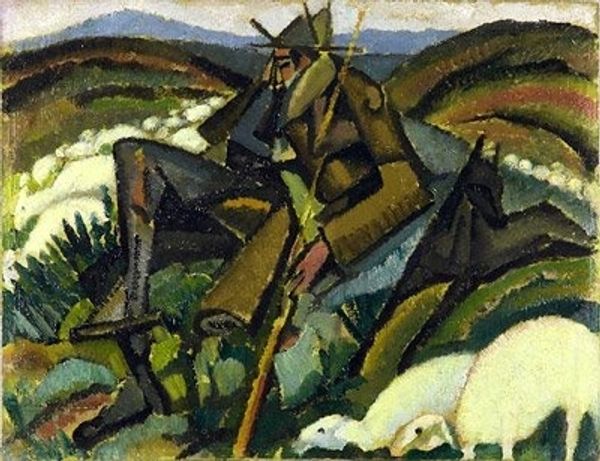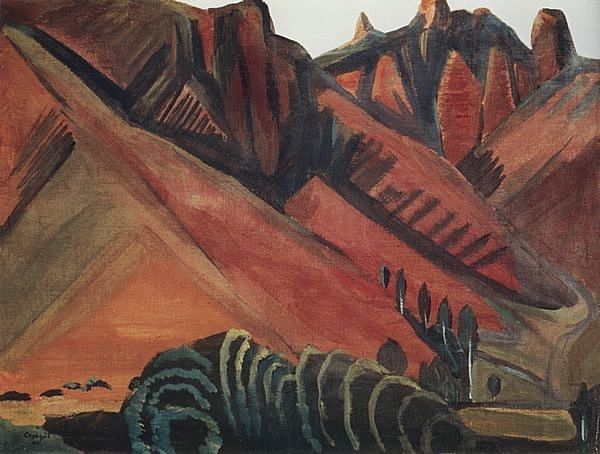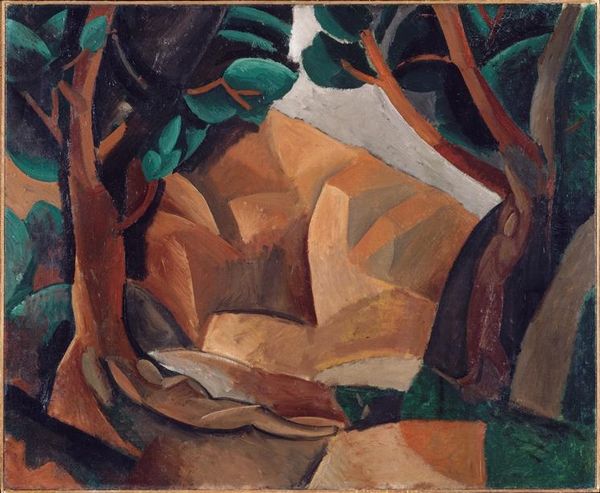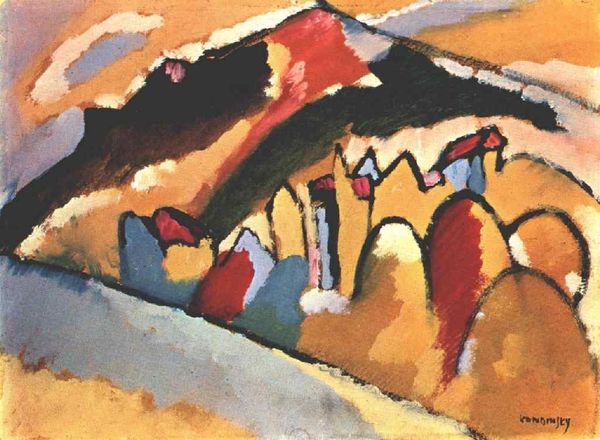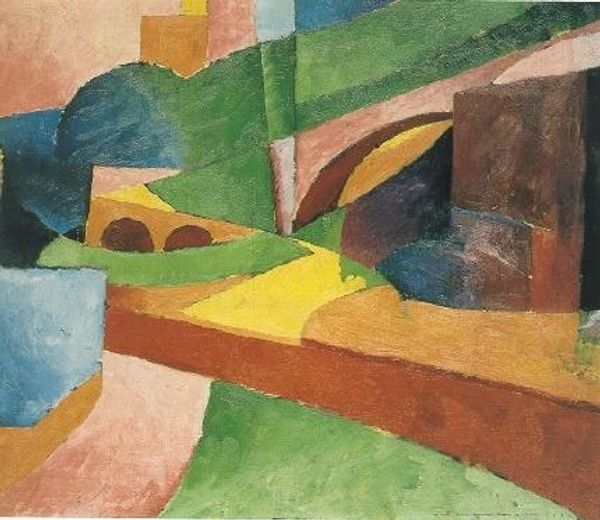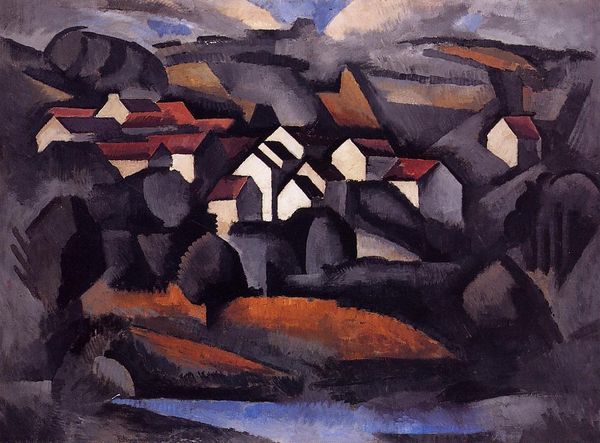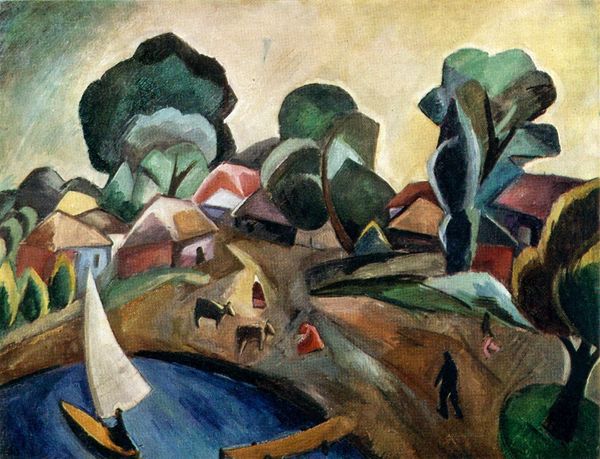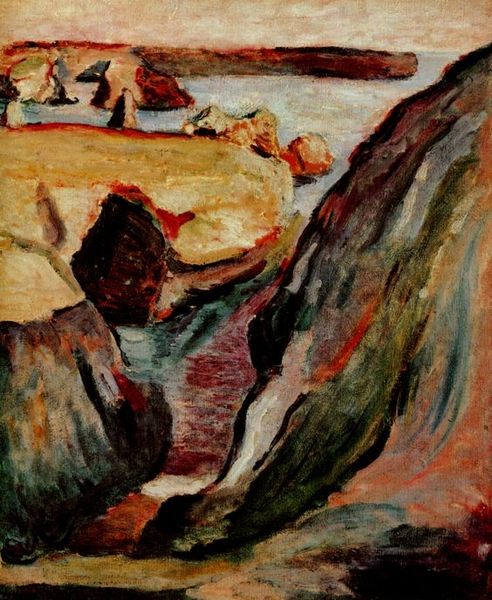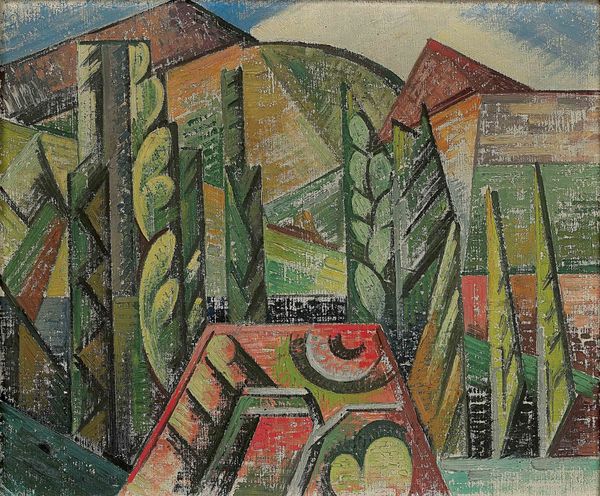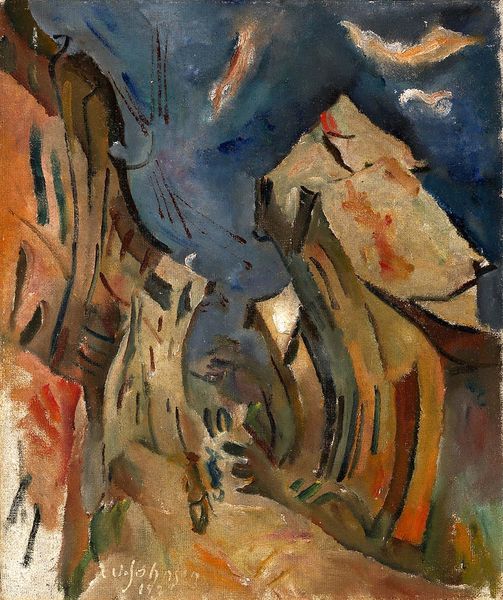
Copyright: Public domain
Curator: Henri Le Fauconnier’s oil painting, "Lake", completed in 1911. What strikes you first about it? Editor: The fractured, almost geological forms. It’s like looking at a landscape that’s been deconstructed and reassembled according to a different set of rules. Very unsettling but visually engaging. Curator: Absolutely. Fauconnier was grappling with post-impressionist ideas while maintaining connections to older artistic concerns, such as labor practices and relationships with industrial production in France. He moves us past simple representation of an idyllic scene. Editor: I agree. And these forms aren't simply about imitation; look how the mountains and the water are rendered in planes, reduced to their essential geometry. There's a dialogue between volume and surface, mass and flatness. He challenges our very sense of perspective. Curator: Think about the pigments used. This wasn't some pure vision conjured from the ether. Pigments were produced from industrial mills that used the labor of French factory workers, from material extraction to mixing paints. Editor: Indeed. I’m more fascinated by how Fauconnier deployed color to articulate space and mood. The cool blues and greens of the lake contrast so vividly with the warm ochres and browns of the land. And note how the light is not just ambient; it’s structured. Curator: Structured according to the processes of production. A new, emerging European world in 1911 where art was increasingly being influenced by commercial activity and societal shifts. Editor: True, but ultimately, that all takes a backseat to the artist’s manipulation of form. We are perceiving a flattened representation; it evokes nature, yet calls attention to its constructed status through compositional strategies, light, and color. Curator: I appreciate the insight, focusing on how these paintings offer perspectives beyond aesthetic appreciation to embrace historical, social, and material conditions of its creation. Editor: And I find the painting rewarding precisely because the formal elements transcend historical specifics. Curator: A stimulating divergence! Thanks. Editor: My pleasure.
Comments
No comments
Be the first to comment and join the conversation on the ultimate creative platform.
